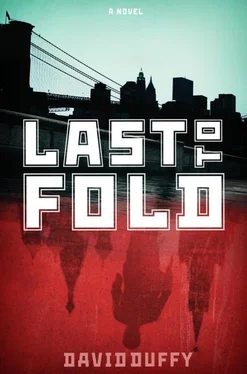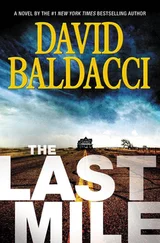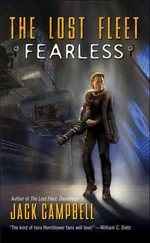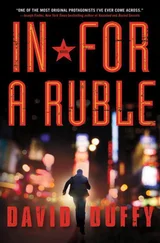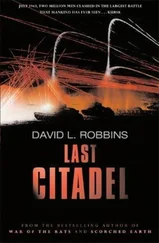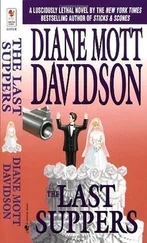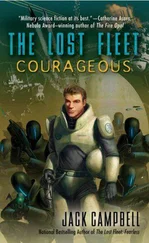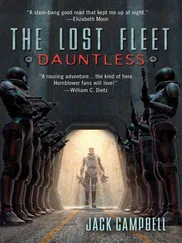Buying one the first time I lived here, in 1977 as a junior officer in the KGB’s New York rezindentura, was both impractical and a quick way to end my career. When I returned in 1993 as a private citizen, I had no such constraints. I found one in Florida, with low mileage and no rust, flew to Tampa that afternoon, and drove it home. On the way, I christened it Potemkin, after the mutinous battleship made famous by Eisenstein’s classic film. More Russian humor.
I took the FDR downtown, got off at Water Street, and was immediately mired in traffic. Driving any car in New York is silly, but driving a boat the size of the Potemkin is a juvenile indulgence, one that almost makes up for a childhood without toys. I crawled the three blocks to my garage, raised the top, and reluctantly turned the Eldo over to José, the day manager, who takes care of it as if it were his own. Then I went up to the office to learn what my ex-wife had been up to for the last twenty years.
Everything was quiet except for the hum of air-conditioning and computer fans, and Pig Pen. We rent the twenty-eighth floor of a nondescript steel-and-glass tower at Pine and Water. It’s about twenty times more space than I need, but Foos and the Basilisk require room, mainly the Basilisk.
The space is actually cheap. We got a great deal on a long-term lease in the wake of 9/11 when no one wanted to work downtown. I already lived on South Street, so I looked at the location as a plus. Foos lives in Brooklyn and never goes above Fourteenth Street, unless it’s an emergency. We’ve got million-dollar views of Wall Street, New York Harbor, the Brooklyn Bridge, and the Statue of Liberty as a bonus.
I made my way through the banks of computer servers that separate the reception area from the rest of the space. Twelve floor-to-ceiling rows, each forty feet long with four-foot aisles in between. They sit on a raised floor under which run miles of cable and supplemental cooling ducts. Sometimes, when I want to lose myself in a problem, I pace the aisles in the dim light and the white noise of the fans. It’s a kind of alternative reality, a desert canyon of electronic intelligence. When I sense the machines trying to speak to me, I turn on the lights or leave.
Behind the server farm is a large open area with two seating arrangements—one organized like a living room, the other a big conference table and a dozen chairs. Around the perimeter are a dozen glassed-in offices and conference rooms, one each for me, Foos, and Pig Pen, and the rest for visitors we rarely have. Foos has converted a second office into sleeping quarters. He says he likes to work nights, but I wouldn’t be surprised if he moved in permanently. I prefer to leave work behind at the end of the day.
“Hello, Russky,” a large African gray parrot squawked from the office he calls home. “Pizza?”
His favorite food, which Foos indulges him, and he thinks everyone else should follow suit. He primarily likes the crust, but lately he’s developed a taste for anchovies. Lombardi’s in SoHo is his favorite.
“No dice. You’re already overweight, Pig Pen,” I said. “Not good for a parrot. Makes you look like a vulture with a dye job.”
He considered that for a moment, realization dawning that I wasn’t carrying the flat cardboard box that contains culinary nirvana. He muttered something I couldn’t catch, maybe a new word he was working on, and kept one eye on me while he gnawed, if that’s what parrots do, on the metal mesh of the cage that encloses his office.
“Pizza!” he tried again. He’s nothing if not persistent. Parrots don’t have lips, of course, which makes p a difficult letter to pronounce, something Foos didn’t consider when he named Pig Pen after the late drummer of his favorite rock band. “Pizza” comes out more like “rizza,” but we have no trouble understanding what he wants.
“Pig Pen Parrot picks a peck of pickled parrot pizza?” I said.
That got me an angry one-eyed glare. He can’t wrap his beak around the tongue twister, and it annoys him no end. I feel guilty teasing him, but it does serve to get him off the subject.
“Where’s the boss?” I asked.
“Boss Man. Pizza.” Pig Pen has a vocabulary approaching a hundred fifty words, to which he adds about a word every other week. He’s efficient. “Pizza” does double-duty for lunch and dinner. “Pancakes”—“rancakes”—serves for breakfast.
“Anything going on?”
“Twenty minutes, Lincoln, forty minutes, Holland.”
“GWB?”
“Flat tire, upper deck.”
“Mass transit?”
He gave me his “who cares?” look and went back to chewing the cage.
Foos furnished Pig Pen’s office with two large Ficus trees, some potted plants, three perches, a swing, and an electric fountain that burbles water over a copper plate and some rocks. He has a view of the Manhattan and Brooklyn bridges. He also has a radio. It took him a day to learn how to work it and a week to determine his favorite station—1010 WINS. He pays special attention to “Traffic and Transit on the Ones,” although for reasons he’s yet to confide, he’s much more concerned with the state of bridges and tunnels than subways and buses. The day he learns to pronounce Kosciuszko, I’m putting him up for auction on eBay.
“Thanks for the update,” I said, heading for my office. “Do svidaniya.”
“Ciao…”
Language skills are my contribution to his education.
“…cheapskate.”
“What?” I turned back.
“No pizza—cheapskate,” he said, the feathers on the back of his neck ruffling as his head nodded up and down. I swear he grins when he knows he’s come out with a zinger. I left him to his self-congratulation.
My office is in the northeast corner, with a view up the East River and out to the Verrazano-Narrows Bridge (Pig Pen knows that one). I can also see the roof of the building I live in two blocks away, where sometimes my well-endowed upstairs neighbor, Tina, sunbathes topless on her roof deck, oblivious to the walls of windows that surround her. Unfortunately, she’s happily married to a former backup linebacker for the New York Giants, so the best I can do is look on from afar, with the help of a pair of Steiner 20 × 80 military binoculars.
Tina wasn’t out, so I checked my e-mail. A message from Foos with the subject “SLUMMING?” It contained a link to a series of pages containing the information the Basilisk had generated on the Mulhollands. I went to the kitchen and made a grilled cheese sandwich from the cheddar and multigrain bread I found there. I grabbed a beer and returned to my office, ignoring the parrot’s imploring calls for sustenance. One of the things I miss about Russia is the beer, which may not be the best in the world, but it has a distinctive flavor I got used to. Most American beer is tasteless. I buy the occasional microbrew, but mostly I drink Czech pilsners—Pilsner Urquell or Budweiser Budvar, sold as Chechvar in the United States because of a trademark dispute with the Busch behemoth in St. Louis. They’re dry, they have a lot of flavor without being too hop-heavy, and they taste something like home.
I looked at the Basilisk’s work while I ate. Plenty of information on Mulholland himself, but mostly what you’d expect—houses (New York, Oyster Bay, Palm Beach), investments, although most of his wealth was in FTB stock, memberships, charitable boards, and so on. He and his wife had a housekeeper, Marisa Cabarillas, living with them. The butler must live elsewhere. He garaged a Maybach limousine and a Range Rover down the block, to the tune of more than two grand a month. He traveled to Europe three times in the last year on a Gulfstream V leased by FirstTrust, stopping in London, Frankfurt, and Zurich each trip. In January, he’d used his black American Express card to purchase two suits at Huntsman, six shirts at Turnbull & Asser, a bracelet for the missus at Asprey, and a Mantegna drawing at Conalghi. The Basilisk told me where he stayed and where he ate. I could’ve had a record of his phone calls, but it didn’t seem necessary. One interesting fact—in the last two months, he’d moved several million dollars into a brokerage account at Morgan Stanley. He’d been a big—make that very big—buyer of FTB stock. Those purchases were all badly under water now, and if he’d been buying on margin, he was almost certainly suffering a credit squeeze of his own.
Читать дальше
